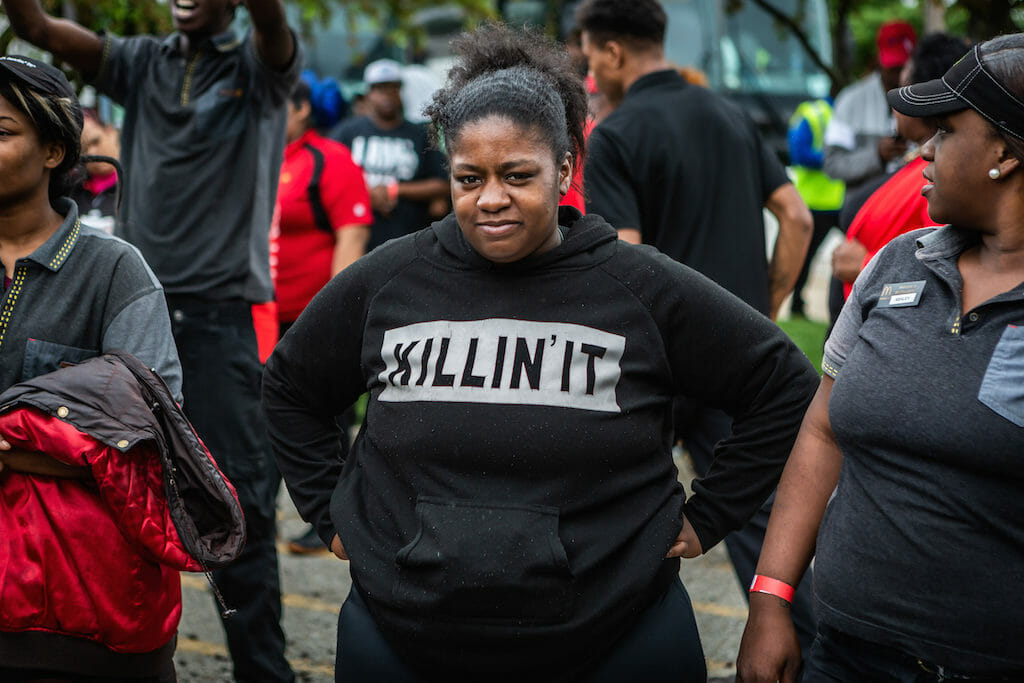
The Poor People’s Campaign: Everybody’s Got a Right to Live
Michael Nigro / Truthdig May 22, 2018 23 photos-
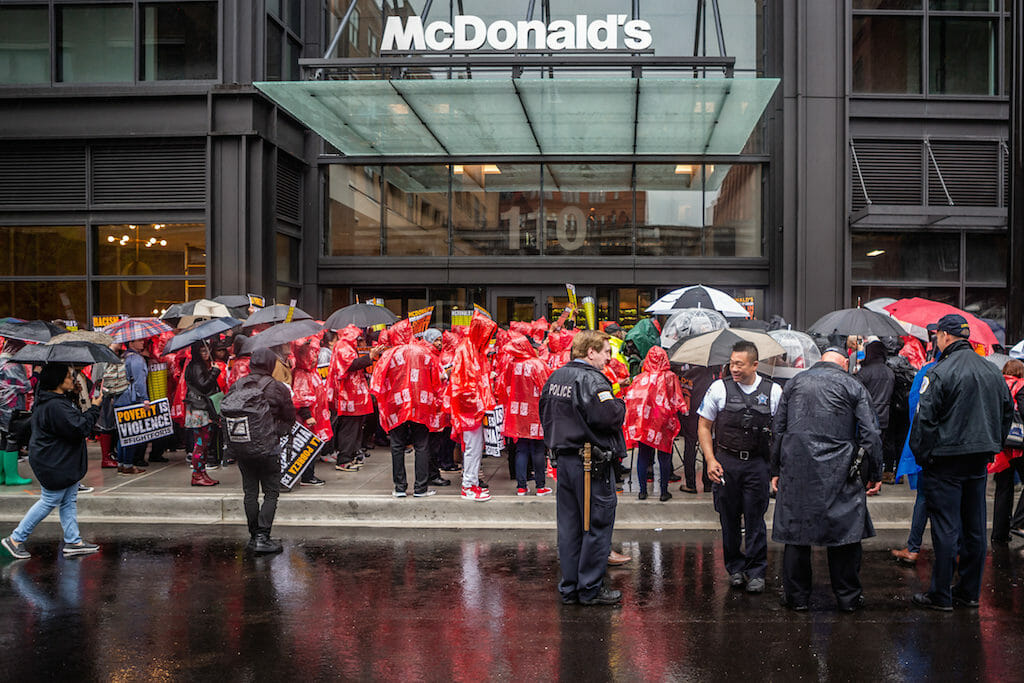
“We work! We sweat! For $15 on our check!” Fast-food workers serve notice to McDonald’s executives at the new $250 million headquarters in Chicago. They plan to participate in civil disobedience with the Poor People’s Campaign. (Michael Nigro / Truthdig)
-
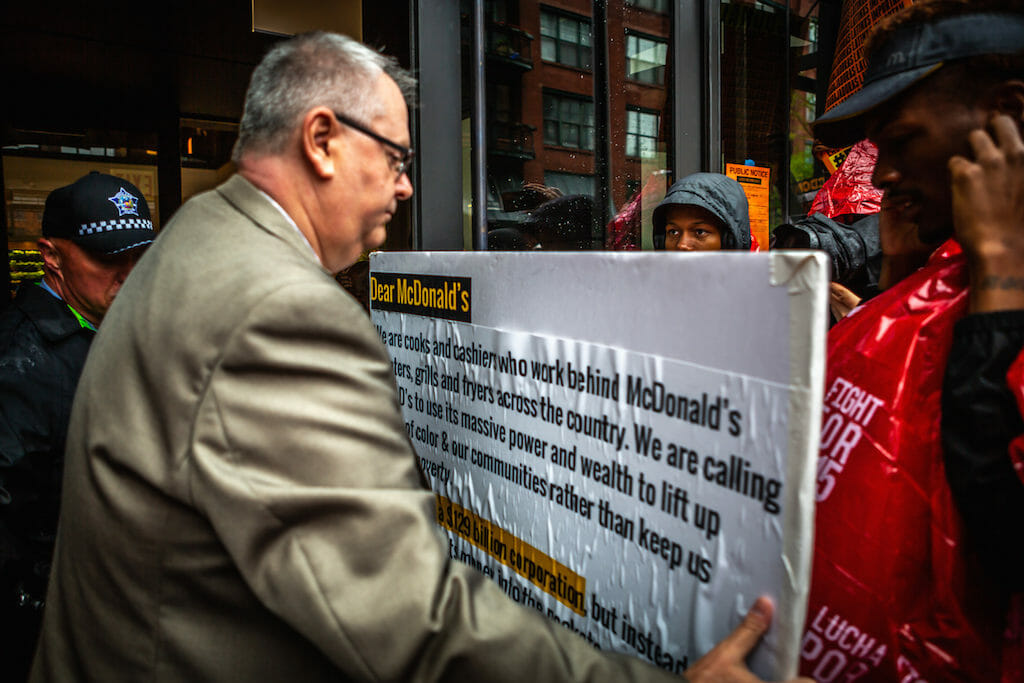
An oversized version of the protesters’ letter to McDonald’s executives, listing their reasons for discontent, is taken into the building by a security guard who agreed to deliver it. The letter’s opening reads, “Dear McDonald’s: We are cooks and cashiers who work behind McDonald’s counters, grills and fryers across the country. And we are calling on McDonald’s—the world’s second-biggest private employer—to use its massive power and wealth to lift up people of color and our communities rather than keep us locked in poverty.” (Michael Nigro / Truthdig)
-
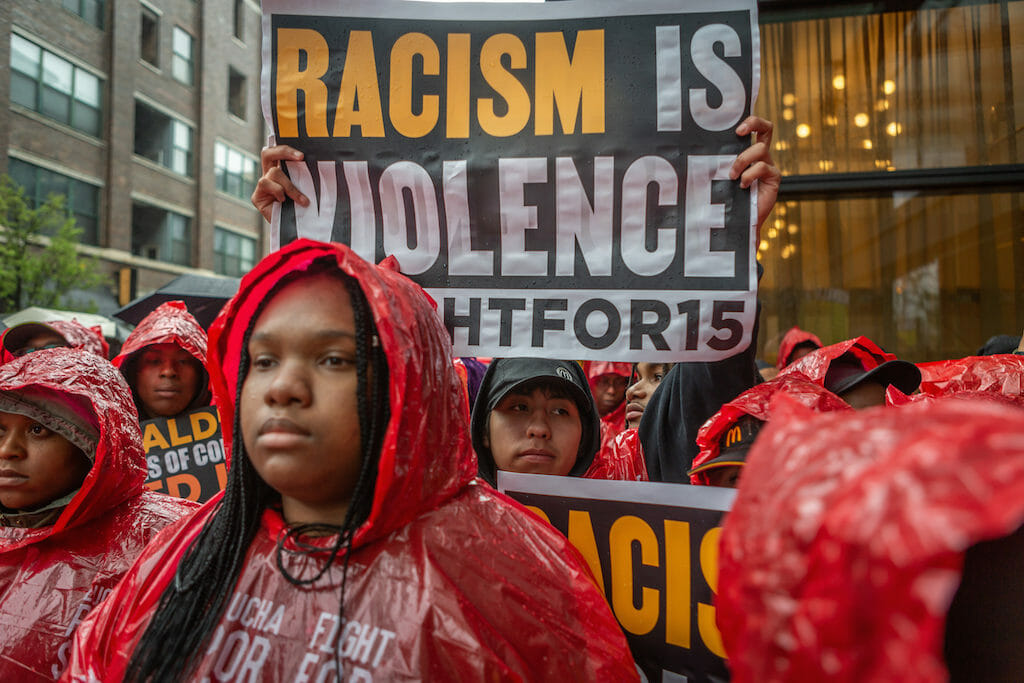
Week 2’s theme of the Poor People’s Campaign: A National Call for a Moral Revival links systemic racism and poverty with voter suppression, immigration, Islamophobia and mistreatment of indigenous communities. (Michael Nigro / Truthdig)
-
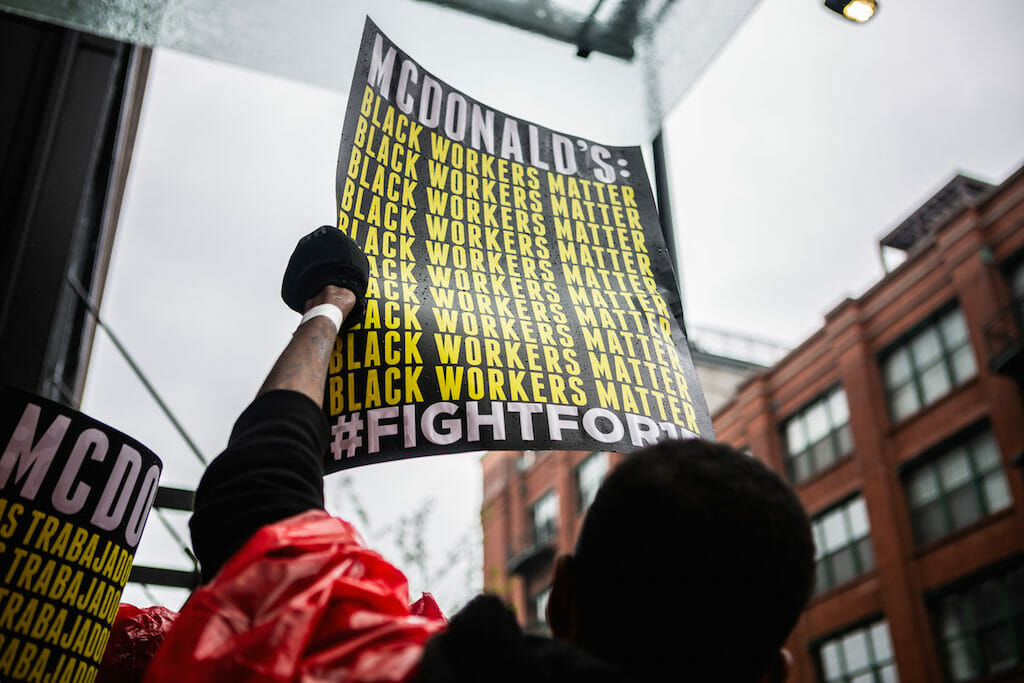
According to the Institute for Policy Studies, between 1973 and 2016, hourly compensation increased 12.3 percent, although productivity increased 73.7 percent. (Michael Nigro / Truthdig)
-
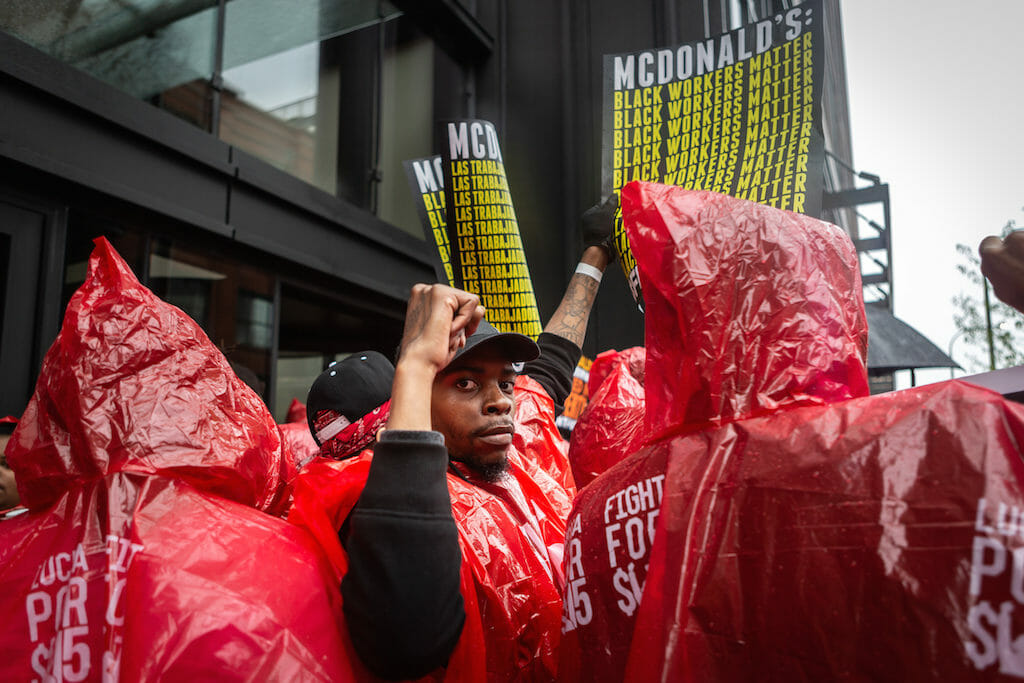
According to the Institute for Policy Studies, in 2016, there was no state or county in the nation in which an individual earning the federal minimum wage of $7.25 an hour could afford a two-bedroom apartment at market rent. (Michael Nigro / Truthdig)
-
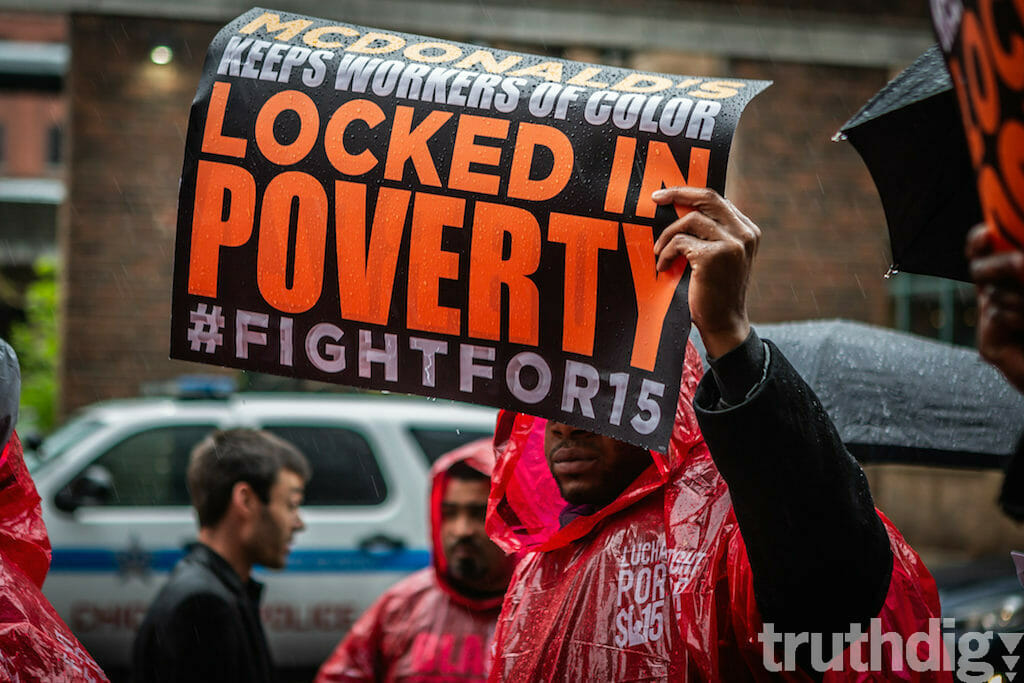
According to the Institute for Policy Studies, 23 states have adopted some form of voter suppression law since 2010, and 25 states have pre-empted cities from passing minimum wage laws (many in response to successful grass-roots living wage campaigns). (Michael Nigro / Truthdig)
-
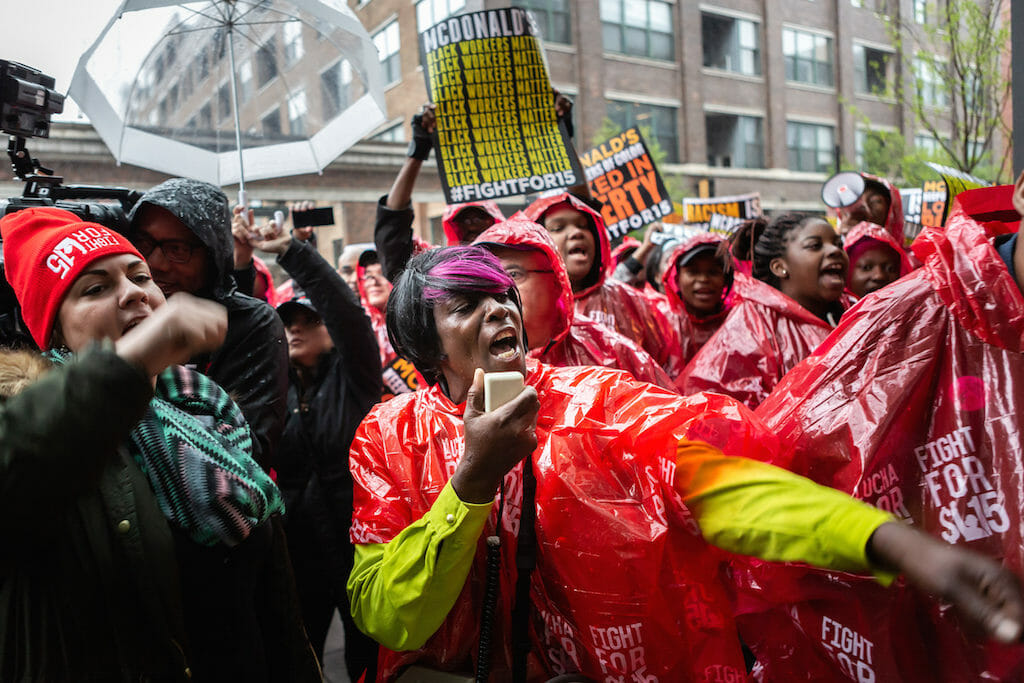
“Hold your burgers! Hold your fries! Make our wages supersized!” (Michael Nigro / Truthdig)
-
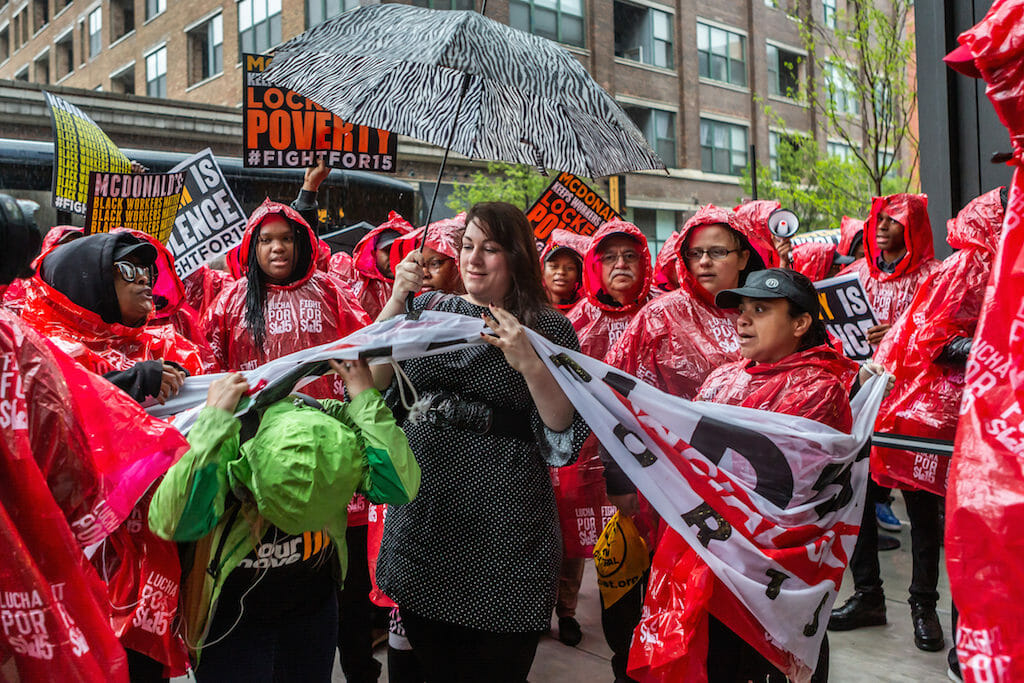
Two McDonald’s headquarters employees are caught behind a Fight for $15 movement banner while trying to enter the building. Other than an interaction with the corporate security guards, this is the only acknowledgment of the protest by corporate employees entering the building. (Michael Nigro / Truthdig)
-
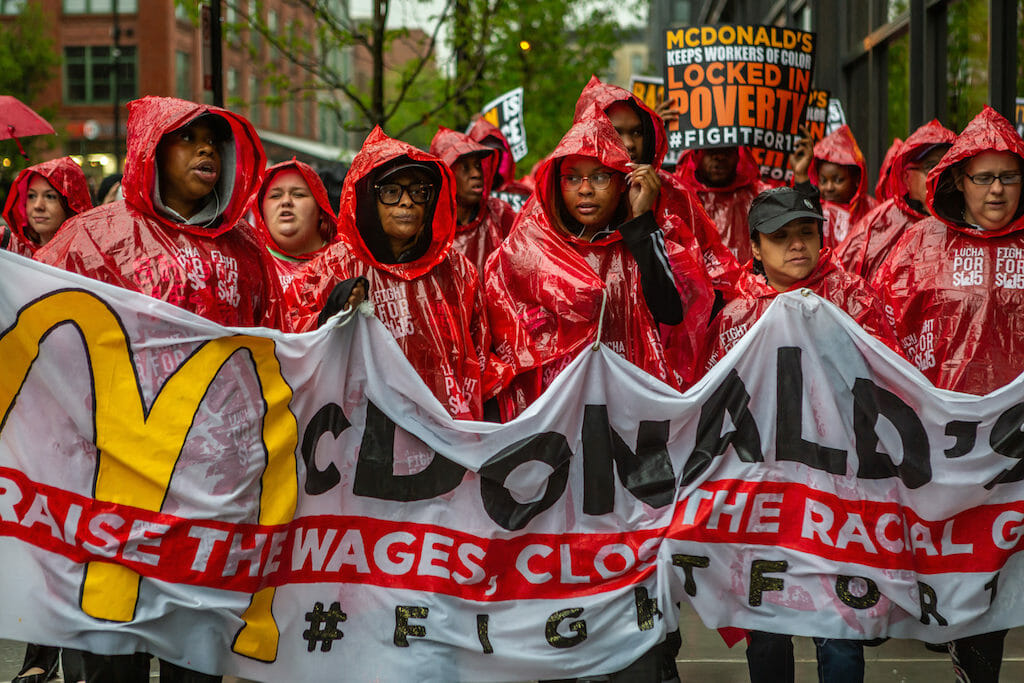
Over the past five years, McDonald’s workers have protested, risked arrest and gone on strike in more than 400 cities across the country. According to the protesters’ letter to corporate executives, they “remain ready to do whatever it takes until we win what we have demanded from Day 1: $15 an hour and the right to join a union.” (Michael Nigro / Truthdig)
-
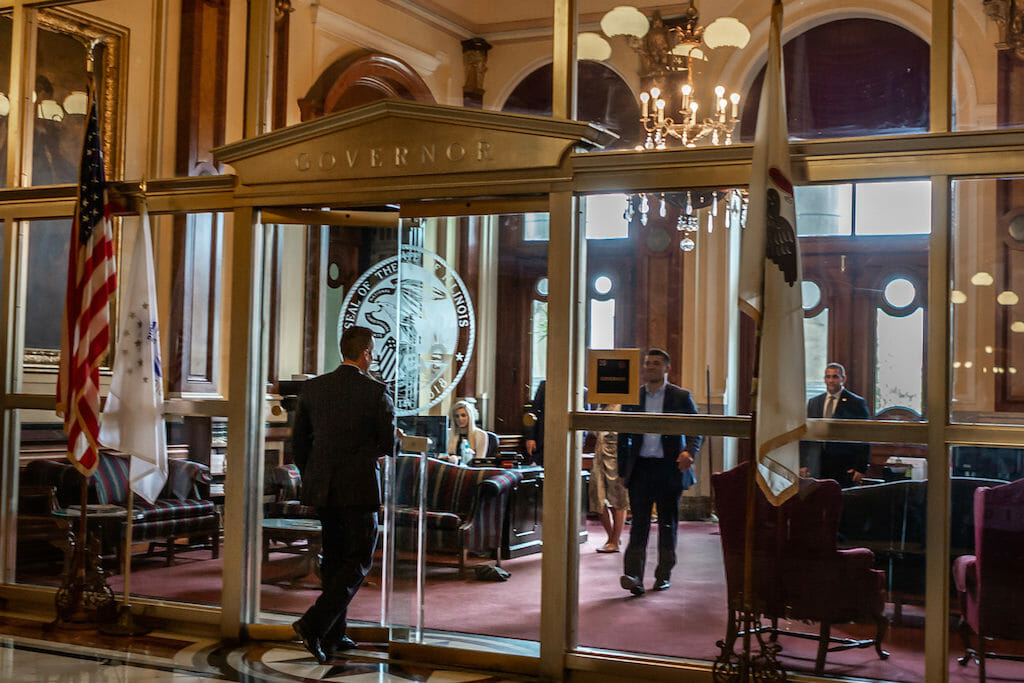
A man enters the Illinois Statehouse after strutting, with a cock-of-the-walk attitude, through a crowd of 150 seated protesters. (Michael Nigro / Truthdig)
-
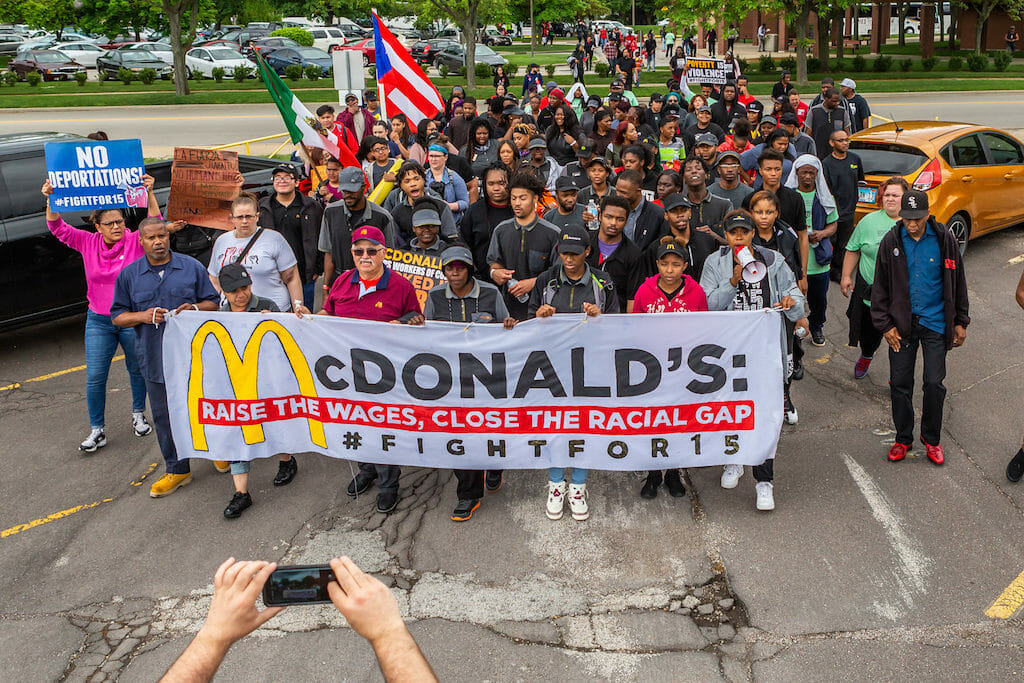
After the morning action at McDonald’s headquarters in Chicago, busloads of activists from the Poor People’s Campaign and the Fight for $15 movement traveled to Springfield, Ill. They met up with various unions, religious leaders and grass-roots organizations and occupied the state capitol building for more than two hours. (Michael Nigro / Truthdig)
-
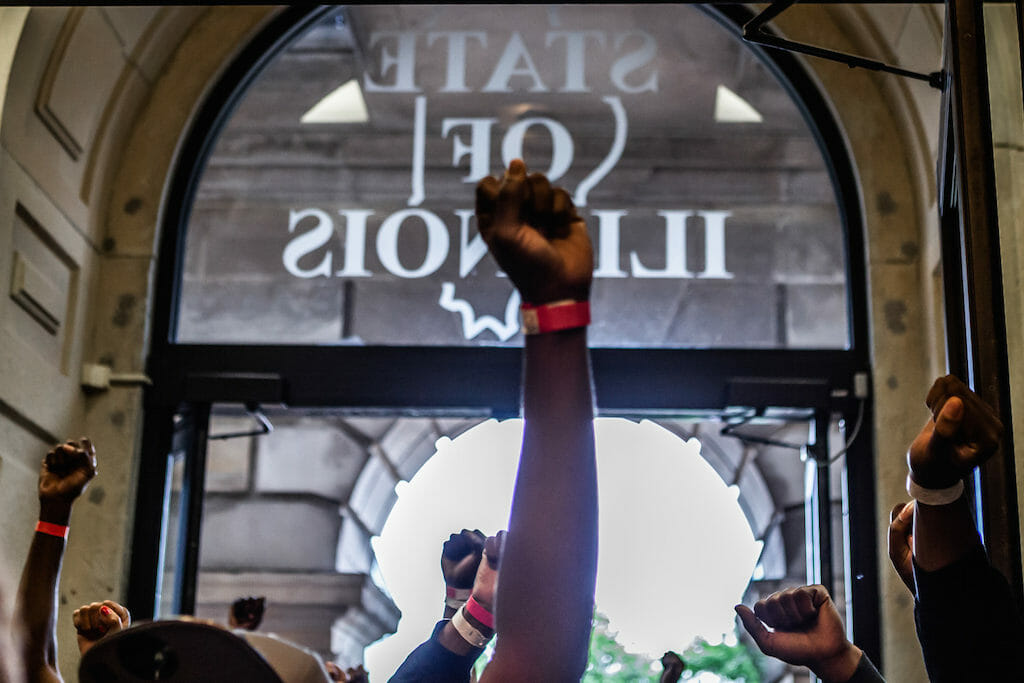
Welcome to the Illinois Statehouse. (Michael Nigro / Truthdig)
-
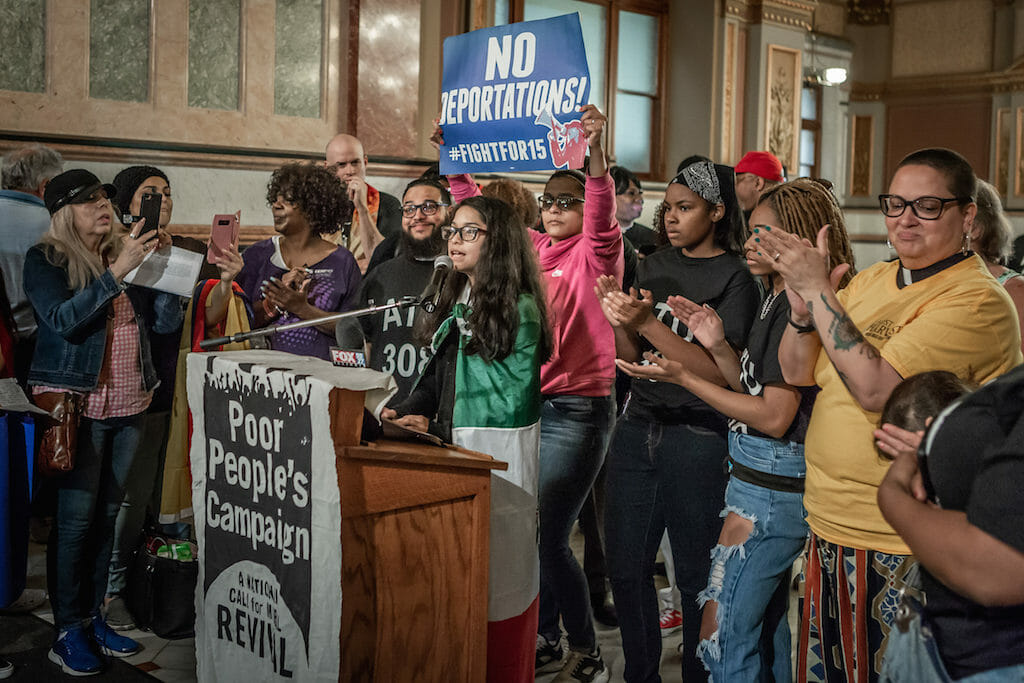
“The president has called Mexicans animals! We are not animals! But if I was, I’d be a black panther, fighting against racism and inequality!” says Mahalia Velazco, an 11-year-old from Chicago. (Michael Nigro / Truthdig)
-
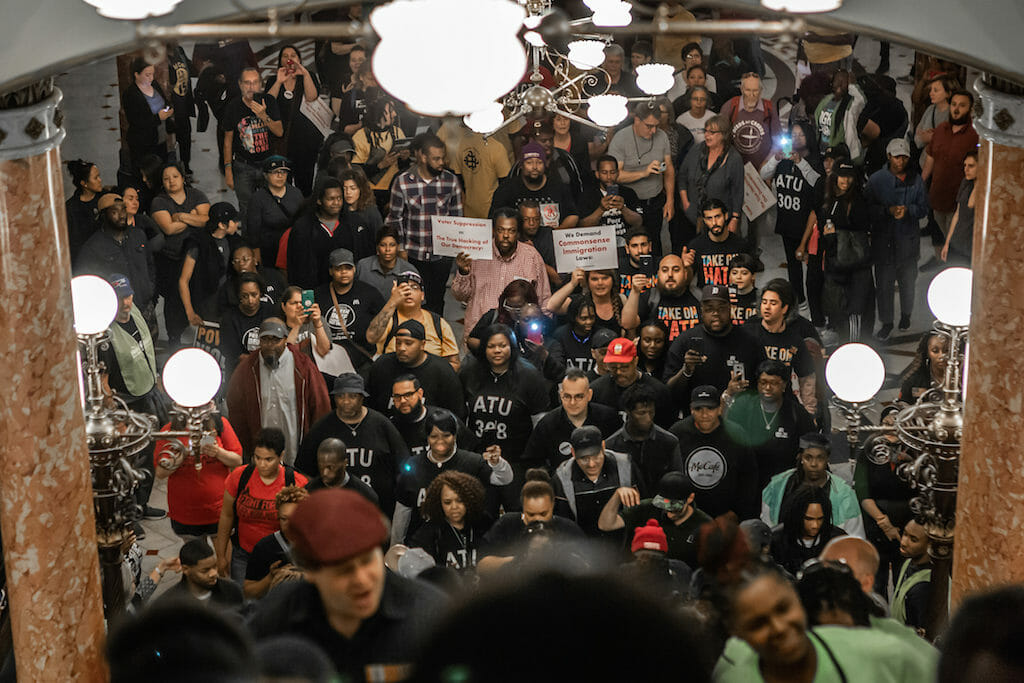
According to the Institute for Policy Studies, since 2010, 23 states have passed racist voter suppression laws. Eight of the 10 poorest states have enacted voter suppression laws. (Michael Nigro / Truthdig)
-
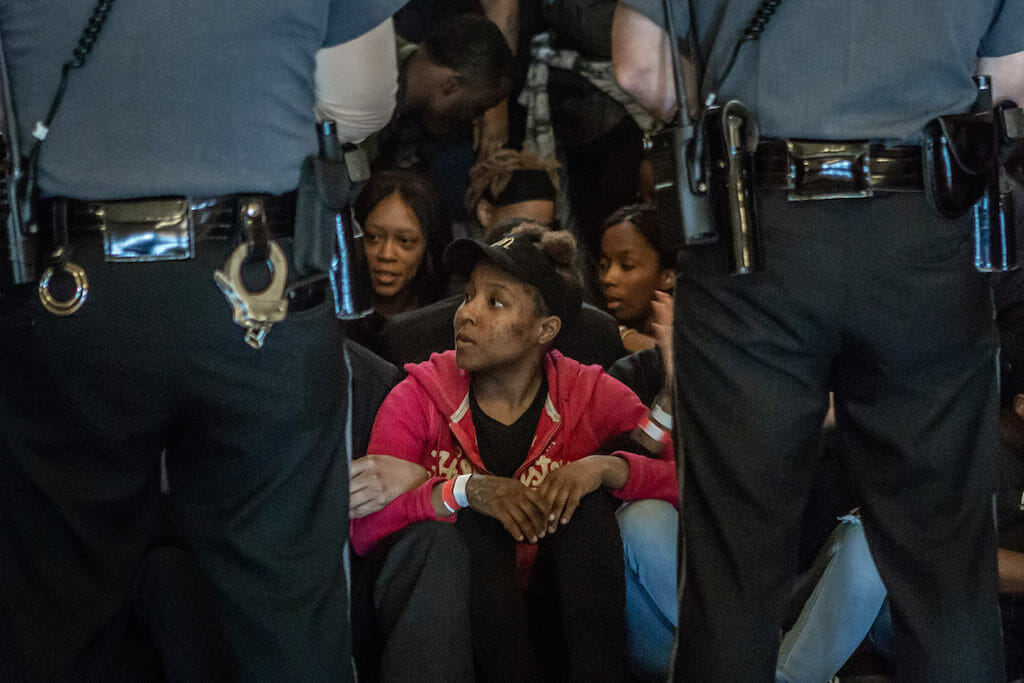
According to campaign organizers, since 1968, at the time of the first Poor People’s Campaign, the top 1 percent’s share of national income has nearly doubled, while the official poverty rate for all U.S. families has merely inched up and down. (Michael Nigro / Truthdig)
-
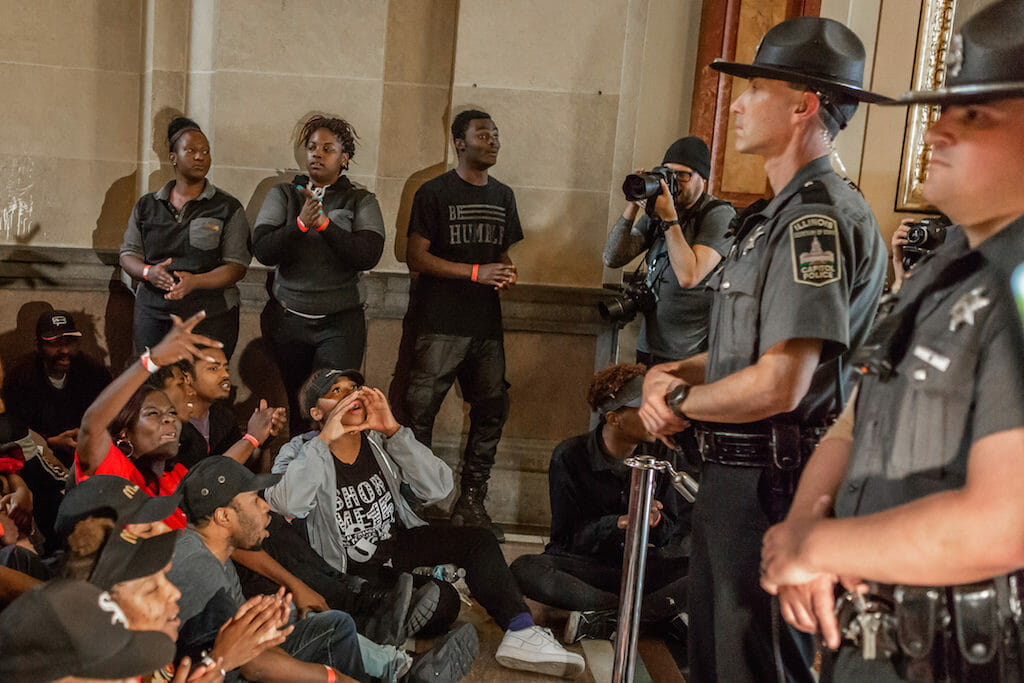
Approximately 125 people engage in civil disobedience by sitting down and blocking entrances inside the Illinois Capitol. (Michael Nigro / Truthdig)
-
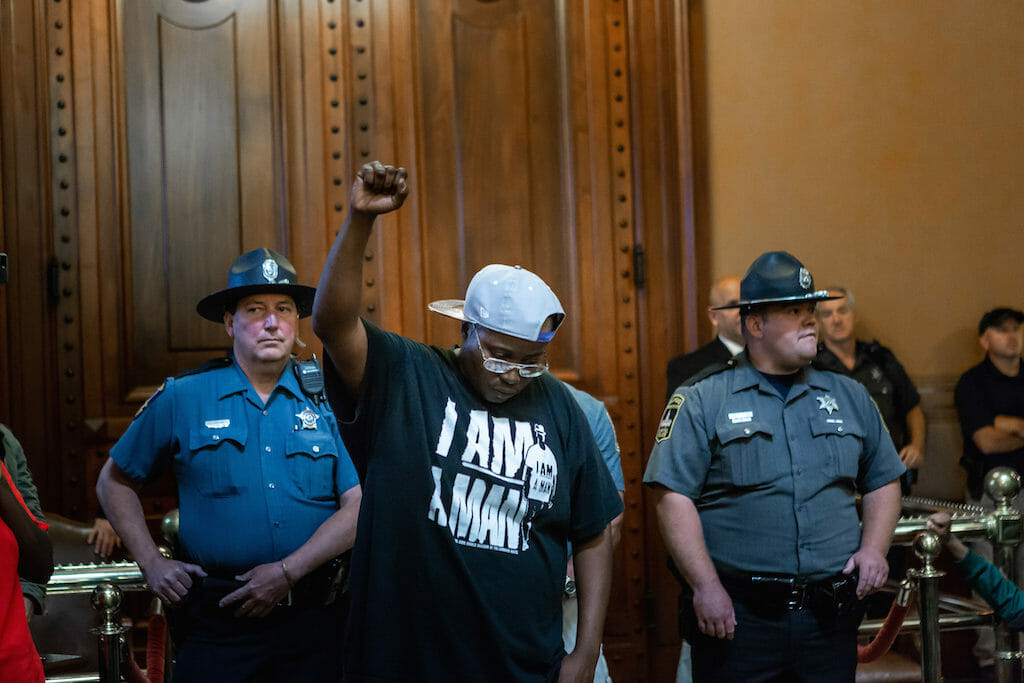
Bleu Rainer, from the Tampa, Fla., chapter of the Fight for $15 movement, leads protesters in chants and songs outside the Senate gallery of the Illinois Statehouse. “Our hope lies in the human imagination,” Chris Hedges wrote in his 2014 speech, “The Myth of Human Progress and the Collapse of Complex Societies.” “It is the imagination that makes possible transcendence. Chants, work songs, spirituals, the blues, poetry, dance and art converged under slavery to nourish and sustain this imagination.” (Michael Nigro / Truthdig)
-
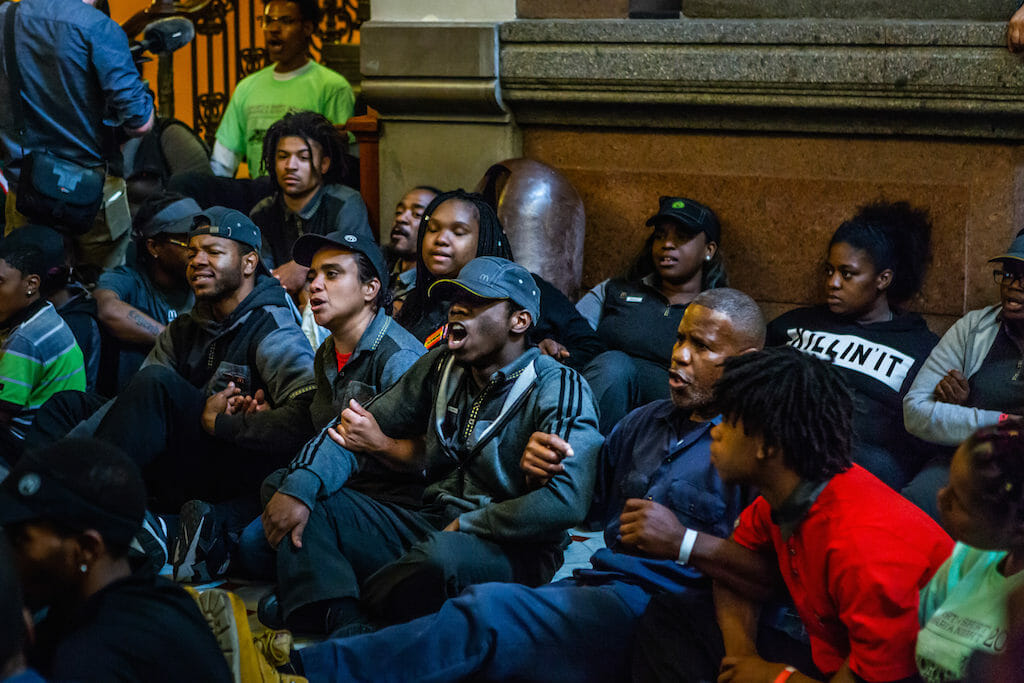
Outside the Senate gallery at the Illinois Capitol. (Michael Nigro / Truthdig)
-
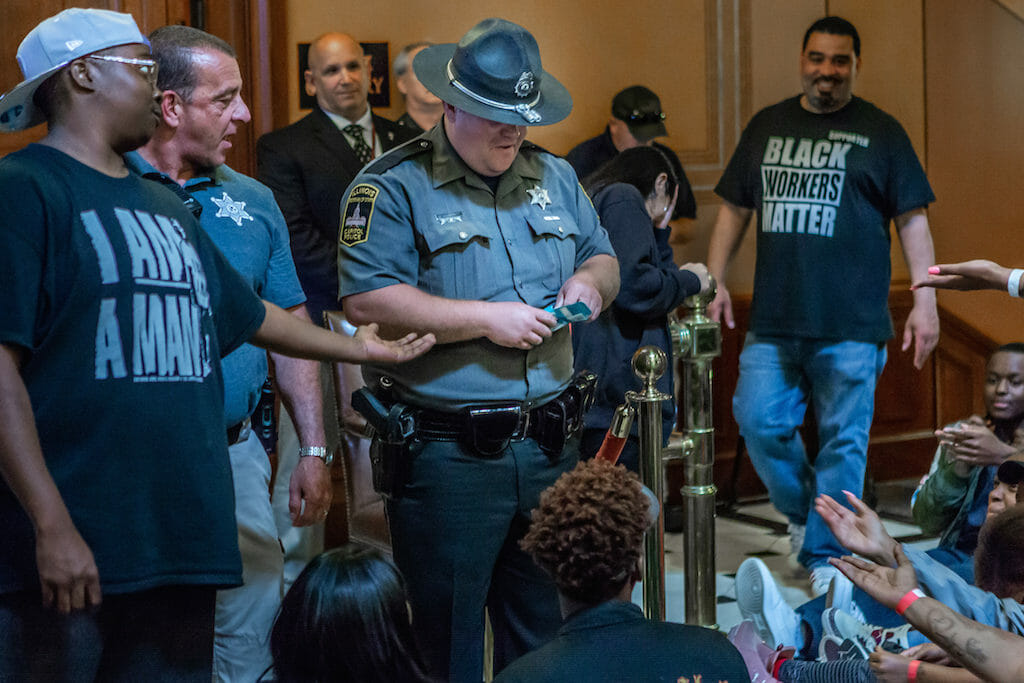
An Illinois Capitol police officer offers gum to the protesters, who had been chanting and singing for almost two hours. He didn’t bring enough for “the whole class.” (Michael Nigro / Truthdig)
-
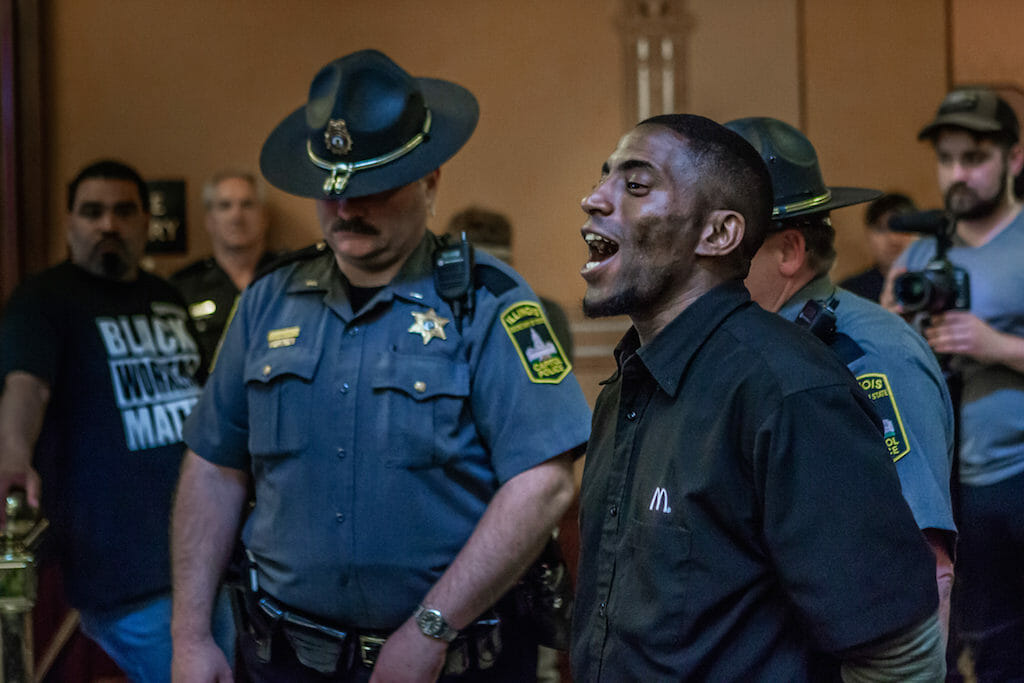
“McDonald’s has been put on notice. … Stop being part of this generational poverty, this systematic poverty that [McDonald’s] are very much a part of,” said Terrance Wise, a leader of the Fight for $15 movement and a member of the national organizing committee from Kansas City, Mo. (Michael Nigro / Truthdig)
-
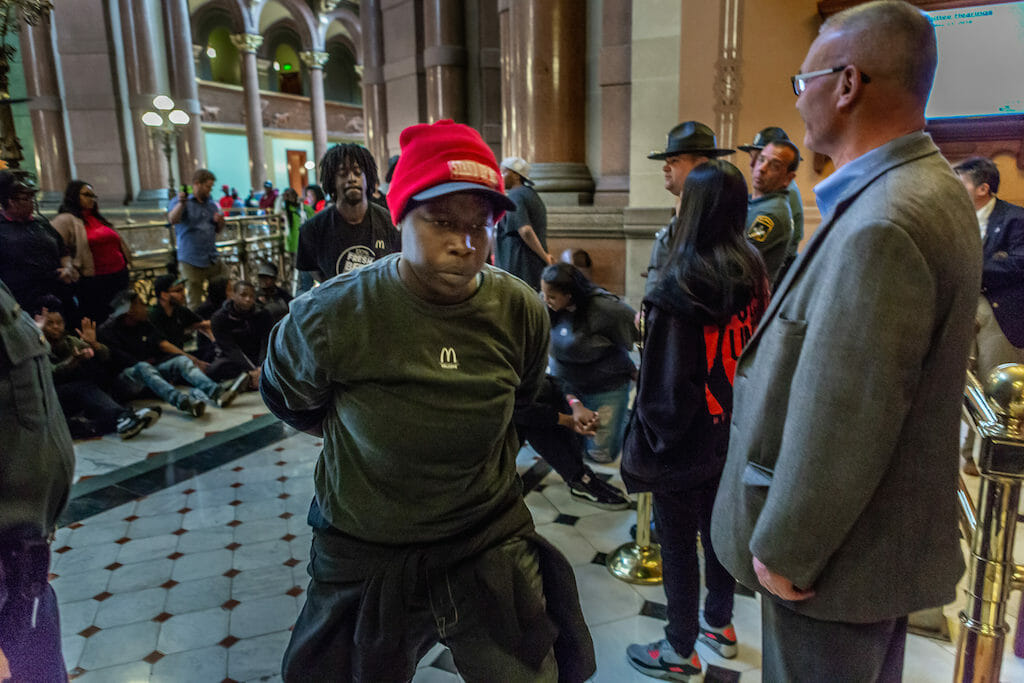
After nearly two hours of blocking entrances, protesters were “removed” from the rotunda, but not arrested. Every protester, as if by rote, placed his or her hands behind their backs as they walked out. (Michael Nigro / Truthdig)
-
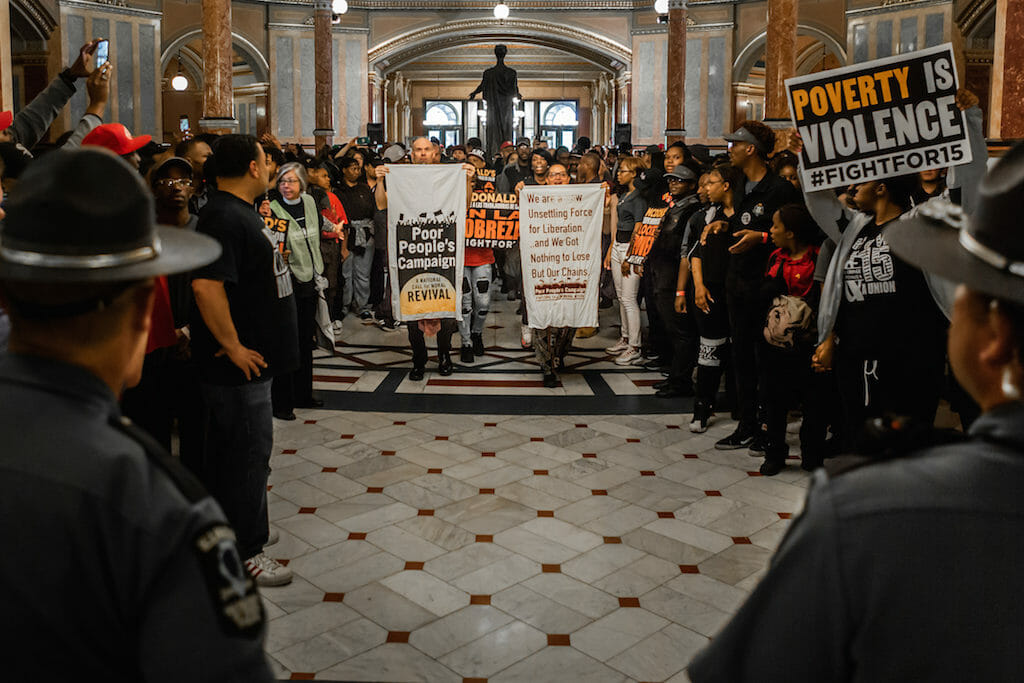
Faith leaders have been among the driving forces behind the Poor People’s Campaign, but the movement is all-inclusive, attempting to manifest the connection between all the issues that systemic racism and poverty impose upon the poor. (Michael Nigro)
-

“When we come to understand that all life is connected—that my well-being is connected to your well-being, that my rights are connected to your rights—only then can we become the beloved community.”—Poor People’s Campaign (Michael Nigro / Truthdig)